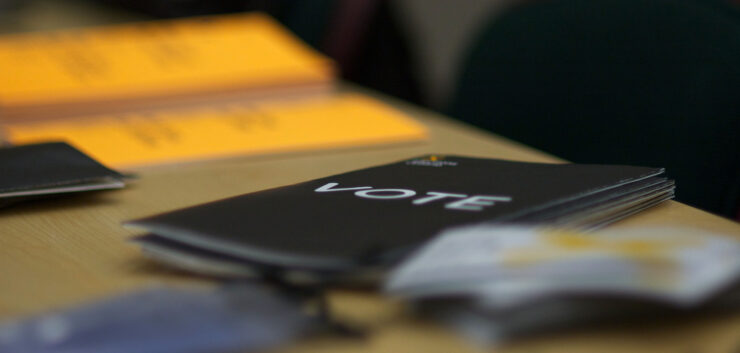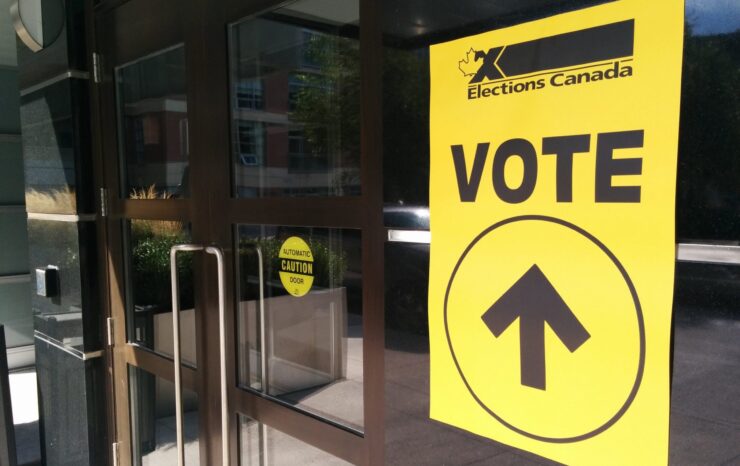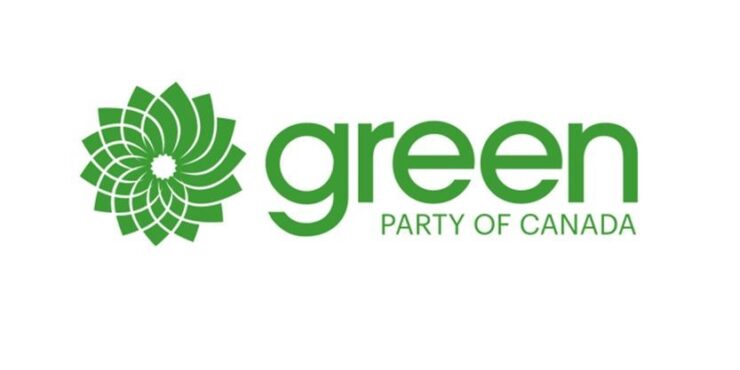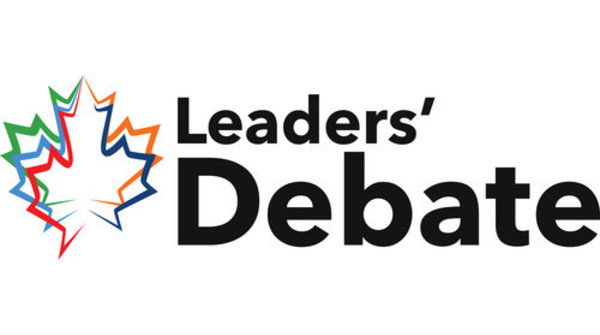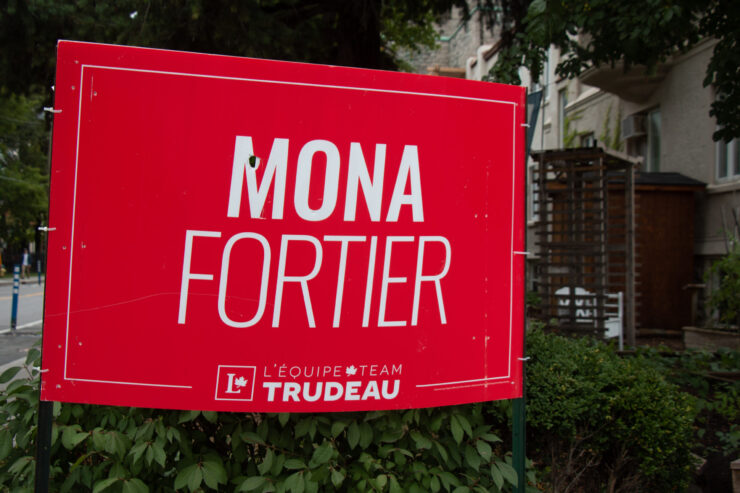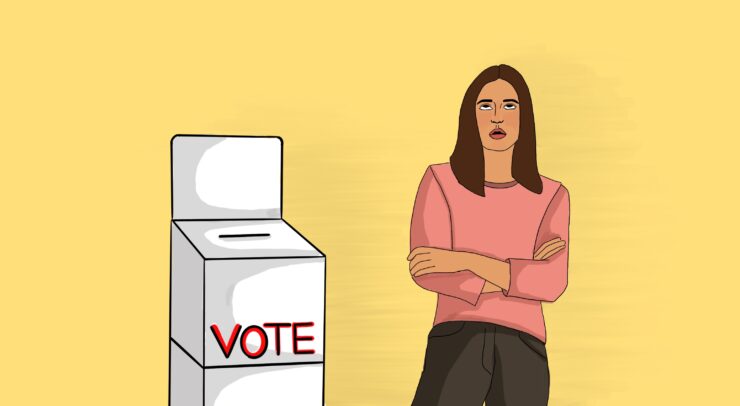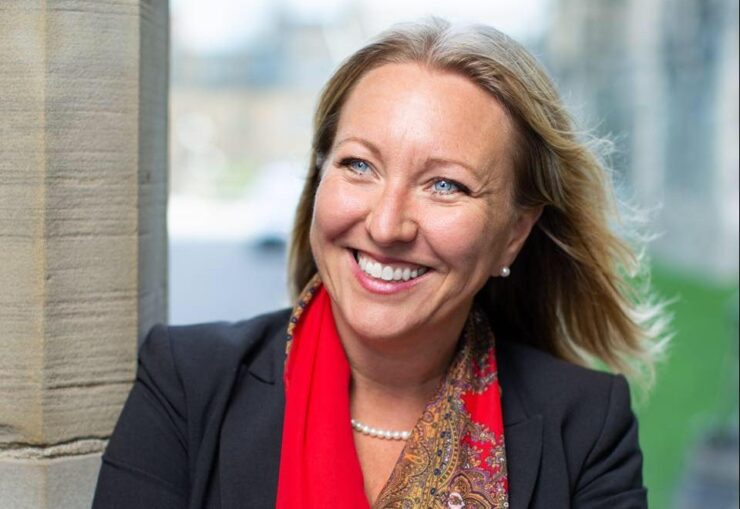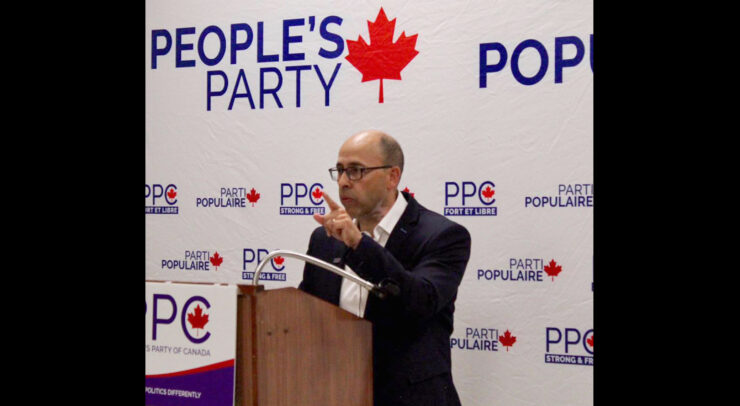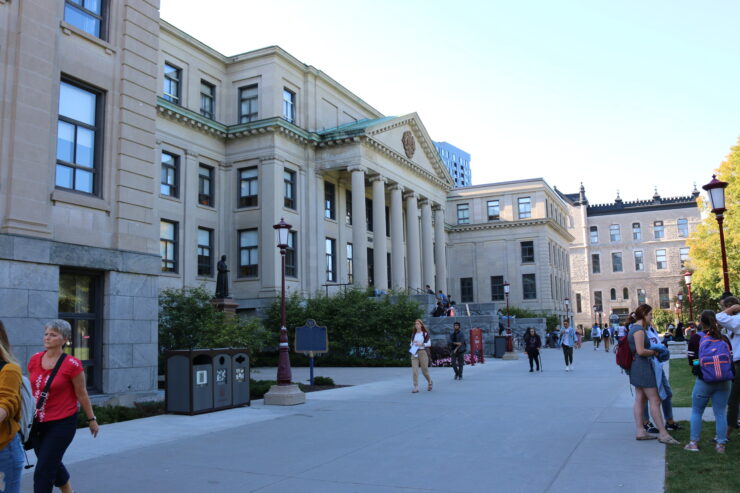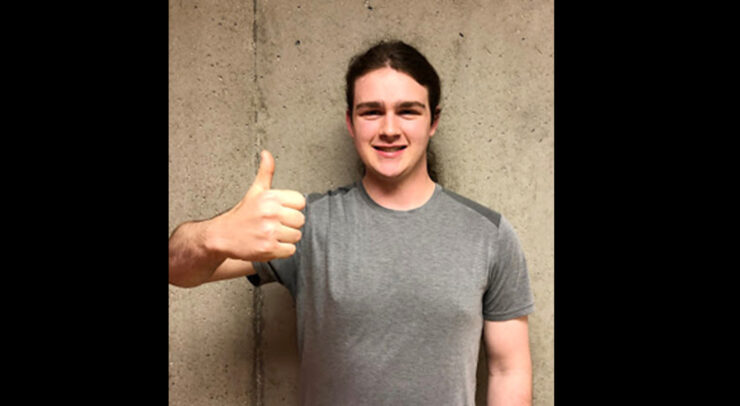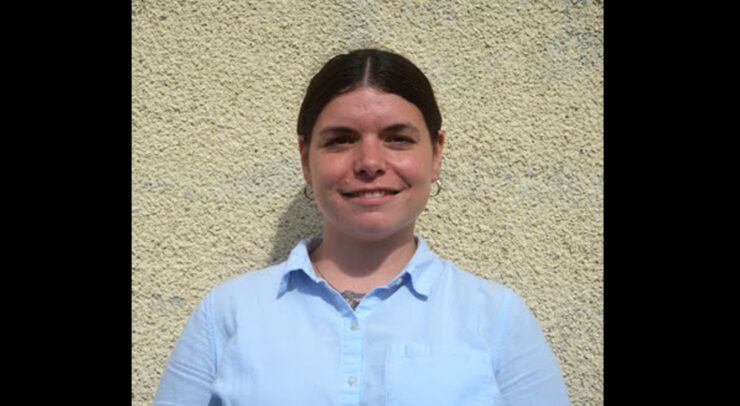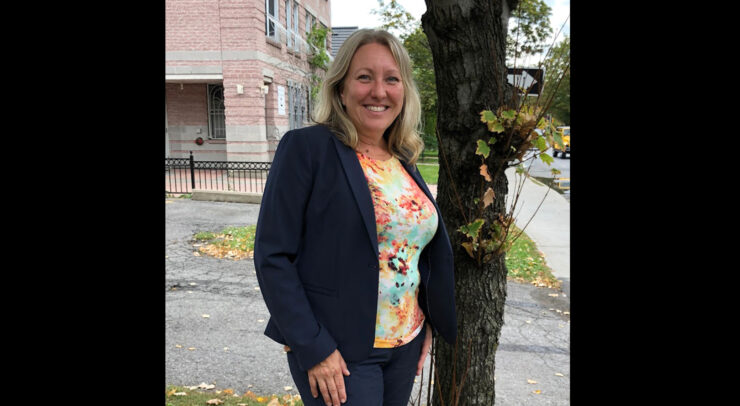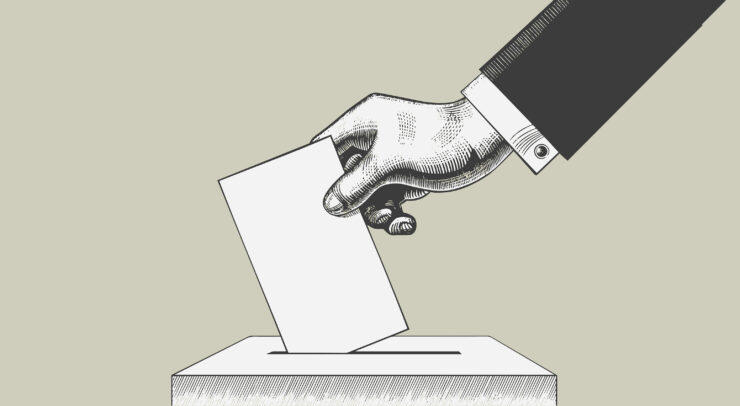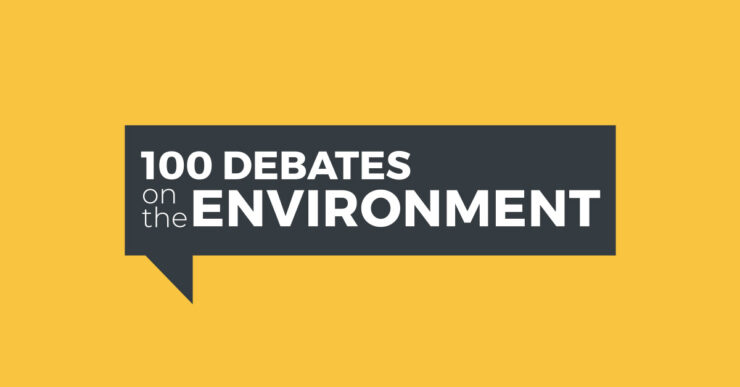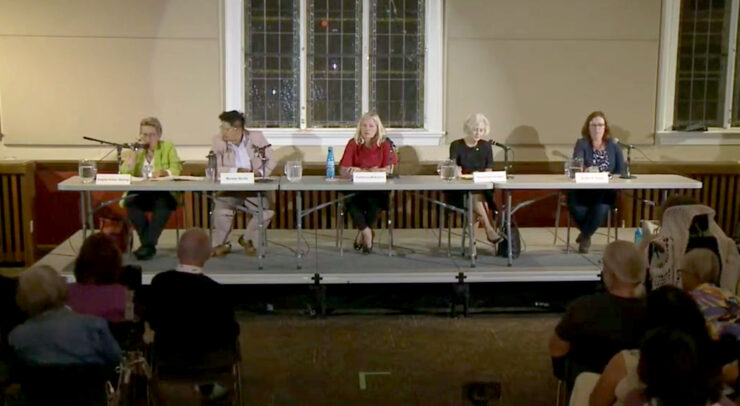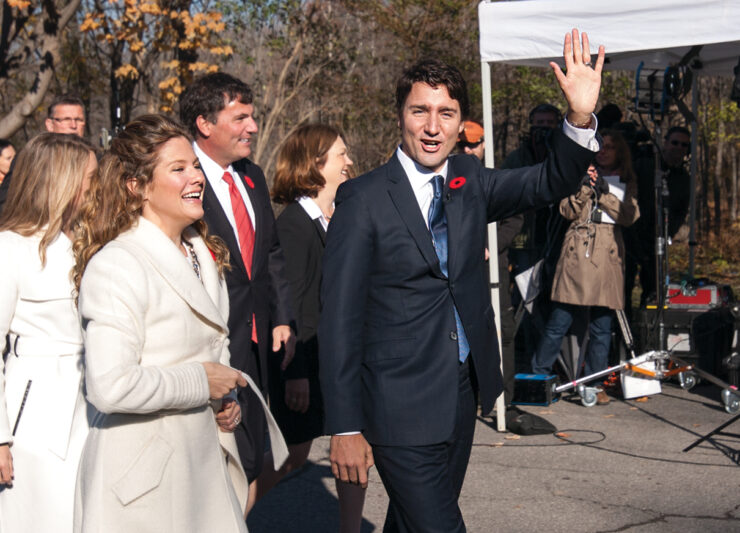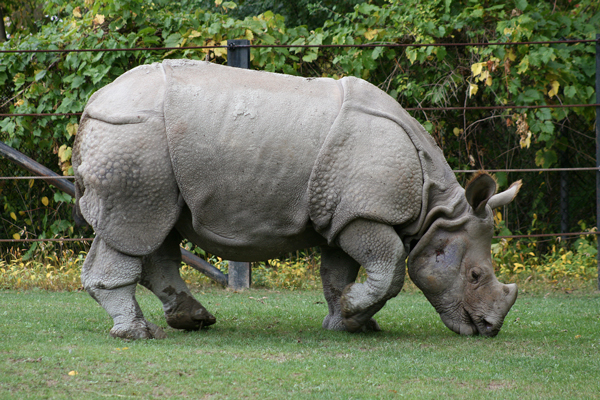Despite a reputation for apathy towards elections, many young people have gotten involved in the upcoming federal election.
federal election
Election day and you’re not sure what to do? Read this!
For the 2021 election cycle, the Fulcrum is interviewing the four major parties candidates in Ottawa-Vanier. Here is our interview with the NDP’s Lyse-Pascale Inamuco.
For the 2021 election cycle, the Fulcrum is interviewing the four major parties candidates in Ottawa-Vanier. Here is our interview with the Green Party’s Christian Proulx.
When I step into the voting booth to pick between the leaders I saw at the federal debate I will invoke some of the few words of the night that truly resonated with me. “Oh shoot,” by Marek McLeod.
For the 2021 election cycle, the Fulcrum is interviewing the four major parties candidates in Ottawa-Vanier. Here’s our interview with the Liberal Party’s Mona Fortier.
Elections Canada will not continue the Vote on Campus initiative for the 2021 federal election, leaving student advocates concerned about youth voter turnout.
Liberal incumbent Mona Fortier was re-elected as the Member of Parliament for Ottawa-Vanier on Monday night in a decisive win, garnering support from about 50 per cent of the riding’s voters. The NDP’s Stephanie Mercier and the Conservative’s Joel Bernard came second and third respectively.
Voter turnout in people aged 18-24 jumped by 18.3 per cent from the 2011 election to the 2015 election. It’s never been easier to make an informed decision of which candidate and party you want to support, so let’s keep that trend alive.
“Just because they’re young, doesn’t mean they don’t have a voice, and they are our future. I really look to our young to be the ones that are going to make the positive changes. Our youth need to be emphasized,” said Paul Durst.
We hit the streets of the U of O campus to ask students what key issues they’re focusing on ahead of the federal vote on Oct. 21. Some common topics included the climate crisis, affordable education, and boosting the Canadian economy.
“It’s not really about me. What I’m running for is electoral reform…. So really, I just want people to be able to have more accountability over their elected representatives,” says Keegan Bennett, an independent candidate.
“Vote for the ideas that truly reflect your interest and the interest of the advancement of the working class,” says Communist Party of Canada candidate Michelle Paquette.
The incumbent MP and Liberal candidate for Ottawa-Vanier says she will prioritize affordable housing and fighting the climate crisis if elected. For students, Fortier says she’ll work to secure federal funding to help the province boost mental health support on campus.
“I live here, I breathe here, I work here, this is my environment. This is where I call home. So, I understand their reality, and the best way to represent people is to understand their reality,” says NDP candidate, Oriana Ngabirano.
For October’s federal election, most polls are indicating that both the Liberals and Conservatives are tied for Canadians’ support. This means that it is more than likely that either party will end up with less than a majority of the seats in the House of Commons, thereby swinging the determination of the balance of power to the smaller parties.
Candidates met Thursday night to discuss topics such as water protection, pollution, agriculture, and transitioning Canada’s economy away from resource extraction and unsustainable energy.
This is not the time for Andrew Scheer. The world is staring down the barrel of another global recession, we face an existential threat due to climate change, and the world is increasingly multicultural and interconnected; we cannot afford another leader who ignores this.
Canada is a country rich in demographics — and a diverse age-range of voters is just one example of that. However, some age groups seem to be less represented in the democratic process than others — namely, the voting-age youth.
A debate featuring the all-female slate of candidates in the Ottawa Centre riding for the upcoming federal election drew hundreds to the Glebe Community Centre Wednesday night. The candidates debated climate change, Indigenous rights and the opioid crisis, among other topics.
Candidates need to rethink how they communicate and prioritize community connection along with issues that really matter to the younger generations, especially climate change.
Stephanie Mercier is a U of O common law student and former athlete on the Gee-Gees women’s hockey and rugby teams.
Canadian democracy isn’t broken—but it’s far from perfect, and it could definitely use some major reform and modernization.
How has the Postmedia, Sun media merger affected Canada’s print media landscape since the deal was finalized in March? Media critics Jesse Brown, Vivian Smith, and Kelly Toughill weigh in on this contentious issue.
The results of Monday’s federal election voting is in, and for the first time in Canadian history, the Rhinoceros party has won a majority government. This result comes as even more of surprise since it wasn’t predicted in any of the major polls, blindsiding many seasoned political analysts.

